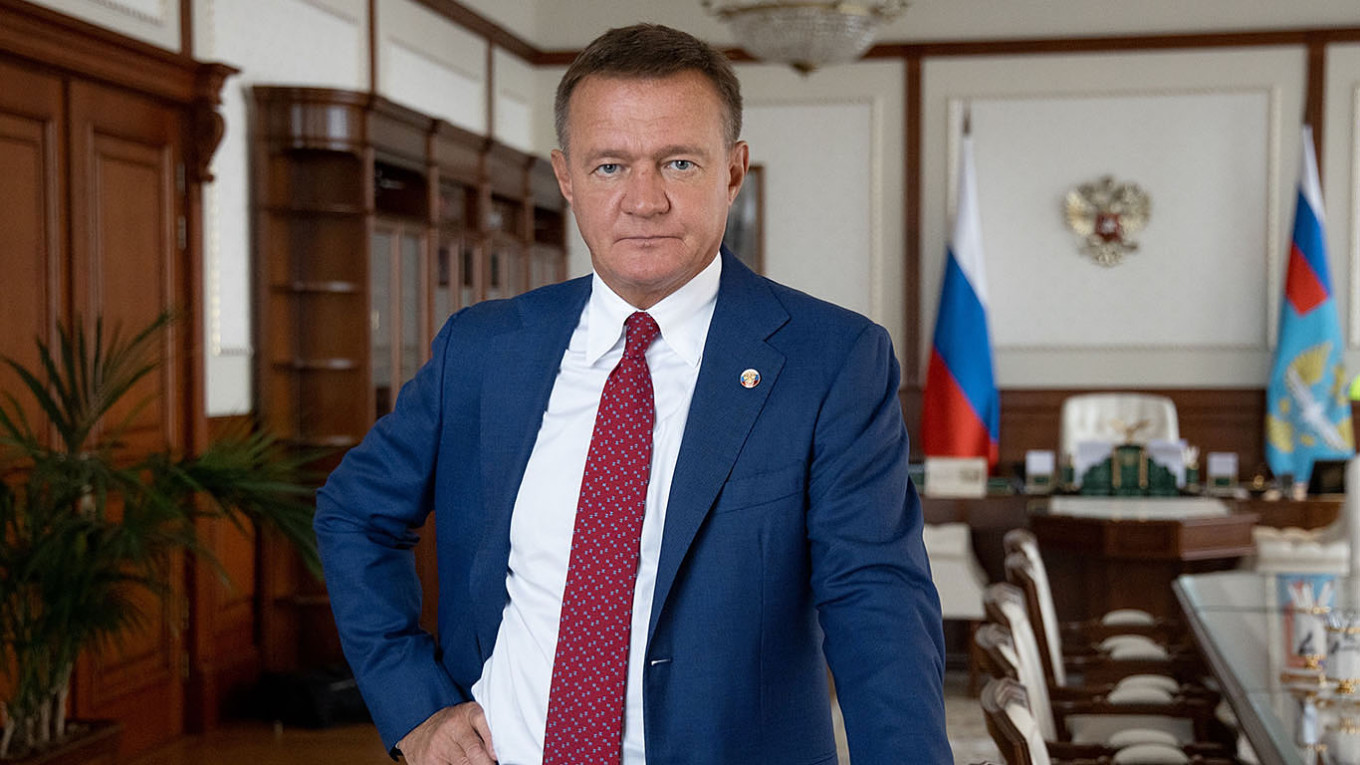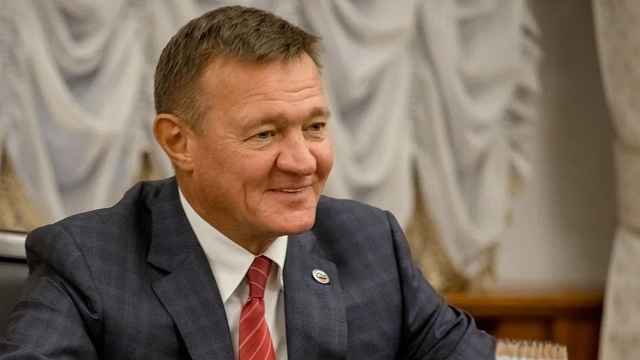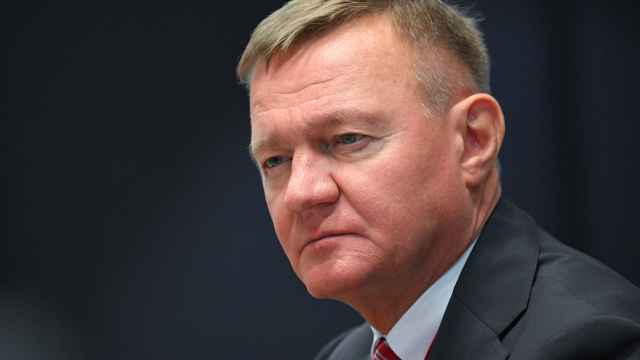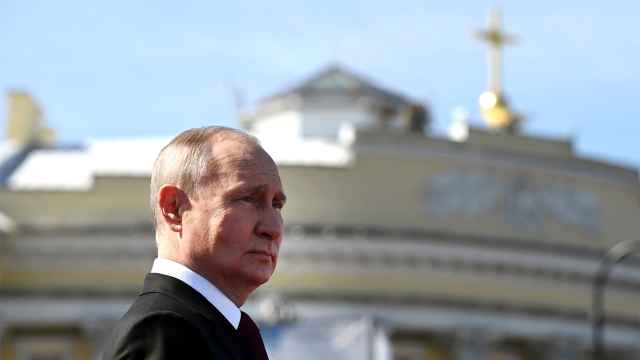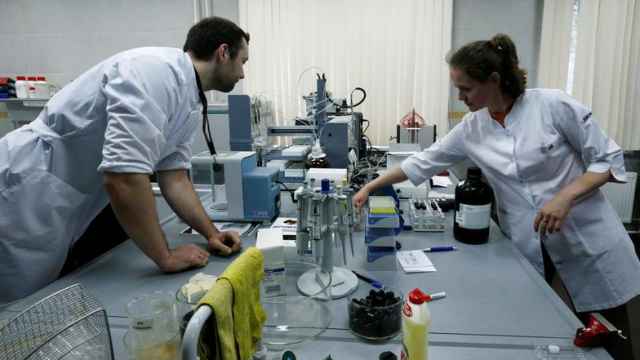On Monday, former Transportation Minister Roman Starovoit was found dead in an apparent suicide, just hours after news broke that President Vladimir Putin had sacked him.
Media reports suggest that Starovoit may have died by suicide as early as Friday, while State Duma lawmaker Andrei Kartapolov told reporters that the former minister had died “quite long ago.”
Starovoit, 53, who was sacked just one year after being appointed transportation minister, previously served as the governor of the Kursk region from 2018 to May 2024.
But who was Roman Starovoit, and how did he end up in this position?
Early life
Roman Vladimirovich Starovoit was born on Jan. 20, 1972, in Kursk. He graduated from the Baltic State Technical University in St. Petersburg in 1995, and then from the North-West Academy of Public Administration in 2008 with a degree in state and municipal administration.
After that, he served as the executive director of the Regional Investment Fund. From 1995 to 2001, he headed the asset management company Promyshleny. Between 2001 and 2005, he was the head of a construction company called Stroyinvest.
Government
Starovoit entered the government in 2005, when he took over as head of the investor relations department and subsequently became the first deputy chairman of the St. Petersburg government’s Investments and Strategic Projects Committee. Then, in 2010, he became deputy director of the Russian government’s department of industry and infrastructure, where he served until 2012.
In 2012, he moved on to head the state road agency Rosavtodor before being appointed deputy transportation minister in 2018.
He would serve only briefly in that position, as he was appointed governor of the Kursk region in October 2018. He was then elected to the position in 2019 and officially joined the ruling, ruling United Russia party the next year.
Prime Minister Mikhail Mishustin then nominated him for Transportation Minister in May 2024, a position he held until his death.
Forbes Russia cited the Center for Political Conjuncture (CPC) as saying that Starovoit was an “uncompromising controller.” In politics, Starovoit called himself a “layman.”
“I've never been involved in politics in my life, nor have I ever participated in any elections,” he admitted once, emphasizing his role as a technocrat, related to “the implementation of specific projects.”
What went wrong?
Starovoit’s tenure as Kursk region governor came under scrutiny after Ukraine’s surprise incursion into the border region last summer.
Since then, law enforcement authorities have made several high-profile arrests, including of his successor Alexei Smirnov, over the alleged misuse of public funds.
While Starovoit had not been directly implicated in the ongoing police investigations, later on Monday, the Kommersant business daily cited unnamed sources as saying that suspects in the embezzlement case, including Smirnov, recently testified against him.
Kommersant reported that Starovoit faced an imminent investigation over being implicated in the embezzlement of at least 1 billion rubles ($12.8 million) allocated for the construction of defensive structures on the border with Ukraine.
Why is his death significant?
Political analysts were quick to describe the kind of shockwaves Starovoit’s death could send through the Russian elite.
Independent journalist Farida Rustamova said that his death should be seen as a blow to the image of Putin’s government.
“The Kremlin is accustomed to treating officials as expendable: today they work, tomorrow we'll lock them up and find someone else,” she wrote on Telegram. “By taking his own life, Starovoit broke these rules. He disobeyed Putin and, instead of meekly going to prison, chose to shoot himself.”
“It is interesting that the current round of political evolution of the regime is more detrimental to the elites than to the taxable class — usually it is the other way around,” political analyst Ekaterina Schulmann wrote.
“At what point will these unfortunate people realize that the answer is not to find the most harmless tsar possible, but to establish mandatory rules for everyone, called the law?” she said.
A Message from The Moscow Times:
Dear readers,
We are facing unprecedented challenges. Russia's Prosecutor General's Office has designated The Moscow Times as an "undesirable" organization, criminalizing our work and putting our staff at risk of prosecution. This follows our earlier unjust labeling as a "foreign agent."
These actions are direct attempts to silence independent journalism in Russia. The authorities claim our work "discredits the decisions of the Russian leadership." We see things differently: we strive to provide accurate, unbiased reporting on Russia.
We, the journalists of The Moscow Times, refuse to be silenced. But to continue our work, we need your help.
Your support, no matter how small, makes a world of difference. If you can, please support us monthly starting from just $2. It's quick to set up, and every contribution makes a significant impact.
By supporting The Moscow Times, you're defending open, independent journalism in the face of repression. Thank you for standing with us.
Remind me later.


